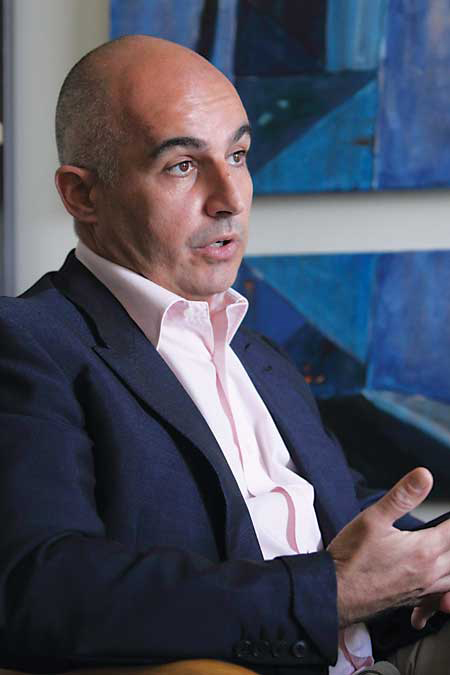
By McGill Reporter Staff
The Office for Students with Disabilities (OSD) has recently received a $277,000 grant from the MESRST for the development of a pedagogical online toolkit to facilitate the implementation of Universal Design for Learning (UDL) on campus. The grant is the result of a Chantier 3 application by a collaborative partnership which brings together four Cegeps (Marianopolis, Centennial, John Abbott and Dawson) and McGill as lead institution.
UDL is a set of principles for curriculum development that give all students equal opportunities to learn. UDL provides a blueprint for creating instructional goals, methods, materials, and assessments that work for everyone – not a single, one-size-fits-all solution but rather flexible approaches that can be customized and adjusted for individual needs, particularly for students who are ‘in the margins.
“We’re delighted,” said Frederic Fovet, Director of the OSD. “This comes as a perfect on-terrain follow-up to last year’s presentation at the Joint Board Senate meeting.” Last fall, the topic of the annual Joint Board and Senate get-together had been UDL. Participants had been given an opportunity to discuss with instructors, campus service providers and students why the implementation of UDL is so crucial when it comes to guaranteeing access to learning to McGill students at large. During this fully interactive session, which itself modelled the principles of Universal Design, Senators and Board members had also been given the opportunity to discuss through Skype with researchers elsewhere in the world the benefits the framework brings to pedagogy.
“I think that the campus at large is now interested and wishes to explore implementation further,” said Fovet. “However we have carried out research for two years now, parallel to our efforts for implementation, and we have identified a variety of factors which influence the ability and willingness of individual instructors to push ahead with the adoption of UDL in their own classroom. This is leading us towards a ‘stressor vs. facilitators’ analysis of the change process in pedagogical practices, as it relates to access. The Chantier 3 grant will enable us to deepen this understanding and to create tools that fully address instructors’ concerns and priorities.”
The Chantier 3 grant obtained the top rating out of 63 applications made across the province. One of the main criteria was the alignment of the proposed project to the objectives of sustainable development. “Access is rarely seen as part of the drive for sustainability,” explained Fovet. “But widening access and facilitating inclusion are central to the notion of sustainability on post-secondary campuses. Sustainable pedagogical practices seek to widen access while reducing the need for costly retrofitting. This is why UDL appears as part of McGill’s Vision 2020 objectives. Social justice is a key component in this planning effort.”
The Chantier 3 project, which will span three academic years, will establish an interactive dialogue with instructors of all backgrounds, across all faculties, in order to determine with great specificity how best to support teaching staff in their exploration of access in pedagogy. The project will lead to the creation of a sustainable, bilingual, online tool kit for UDL implementation which will be showcased and used across the province.
The OSD currently already has a staff member dedicated to supporting instructors explore the implementation of Universal Design for Learning in their classroom, Tanja Beck. The research project will allow these efforts to reach an altogether larger scale and aim for wider impact.
People with questions about UDL implementation on campus or about the Chantier 3 initiative, should email Tanja Beck at tanja.beck@mcgill.ca.
